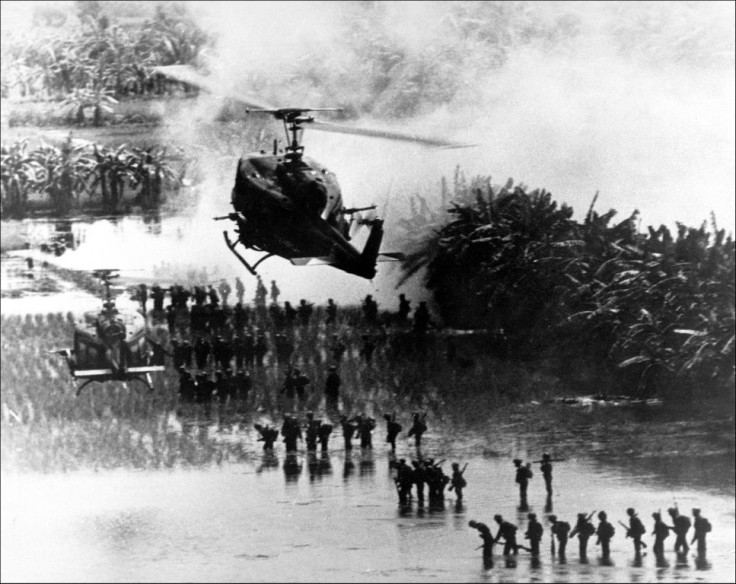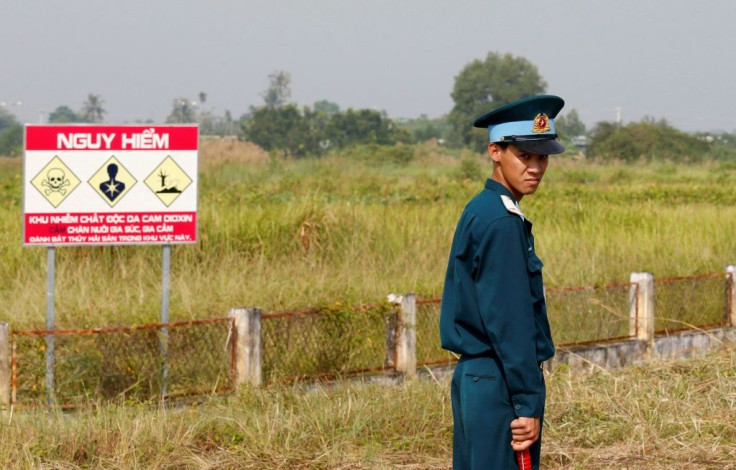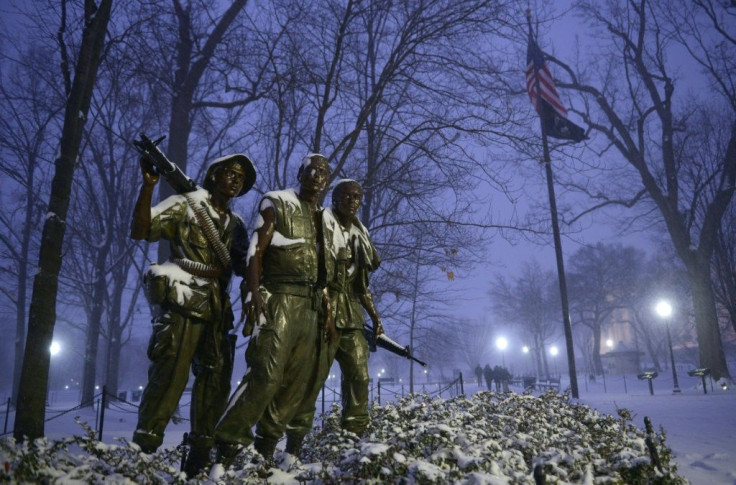French Court Hears Agent Orange Case Against Chemical Firms
A French court on Monday started hearing a case against more than a dozen multinationals, accused by a French-Vietnamese woman of causing grievous harm to her and others by selling the Agent Orange defoliant to the US government, which used it to devastating effect in the Vietnam War.
Tran To Nga, born in 1942 in what was then French Indochina, worked as a journalist and activist in Vietnam in her 20s.
She filed the lawsuit in 2014 against 14 firms that made or sold the highly toxic chemical, including Monsanto, now owned by German giant Bayer, and Dow Chemical.
Backed by several NGOs, she accuses the companies of being responsible for injuries sustained by her, her children and countless others, as well as for damage done to the environment.

"A recognition of Vietnamese civilian victims would constitute a legal precedent," said international law specialist Valerie Cabanes.
So far, only military veterans -- from the US, Australia and Korea -- have won compensation for the after-effects of the chemical whose toxic properties Cabanes said were "absolutely phenomenal", at around 13 times the toxicity of herbicides in civilian use such as glyphosate.

Four million people in Vietnam, Laos and Cambodia were exposed to Agent Orange, according to NGOs, over a decade when the US military sprayed an estimated 76 million litres (20 million gallons) of the herbicide and defoliant chemical to halt the advances of communist North Vietnamese troops and deprive enemy combatants of food sources.
The US ended the use of defoliant chemicals in the war in 1971, and withdrew from Vietnam in 1975, defeated by the Viet Cong.
Agent Orange destroyed plants, polluted the soil and poisoned animals, and caused cancer and malformations in humans as well as attacking people's immune systems, NGOs say.
"I'm not fighting for myself, but for my children and the millions of victims," said Tran.

She herself was suffering from typical Agent Orange effects, including type 2 diabetes and an extremely rare insulin allergy.
She said she also contracted tuberculosis twice and developed a cancer, and one of her daughters died of a malformation of the heart.
Every year, some 6,000 children are diagnosed with congenital malformations in Vietnam, Cabanes said.
The multinationals have argued that they could not be held responsible for the use the American military made of their product.
Contacted by AFP ahead of the trial, Bayer said that Agent Orange was made "under the sole management of the US government for exclusively military purposes".
Soon after proceedings started Monday, lawyers for the firm argued that the court in Evry, a southern suburb of Paris, was not the proper jurisdiction for holding the trial.
Monsanto lawyer Jean-Daniel Bretzner told the court that the companies "acted on the orders of a government and on its behalf".
Since the US government could not be expected to answer to a foreign court for its war actions, the companies should also be immune from prosecution, he said.
Observers said before the trial they expected the plaintiff and her lawyers to argue that the makers of Agent Orange misled the US government as to its true toxicity.
The trial was originally due to open in October, but its start was postponed due to Covid-19 restrictions.
© Copyright AFP 2024. All rights reserved.





















